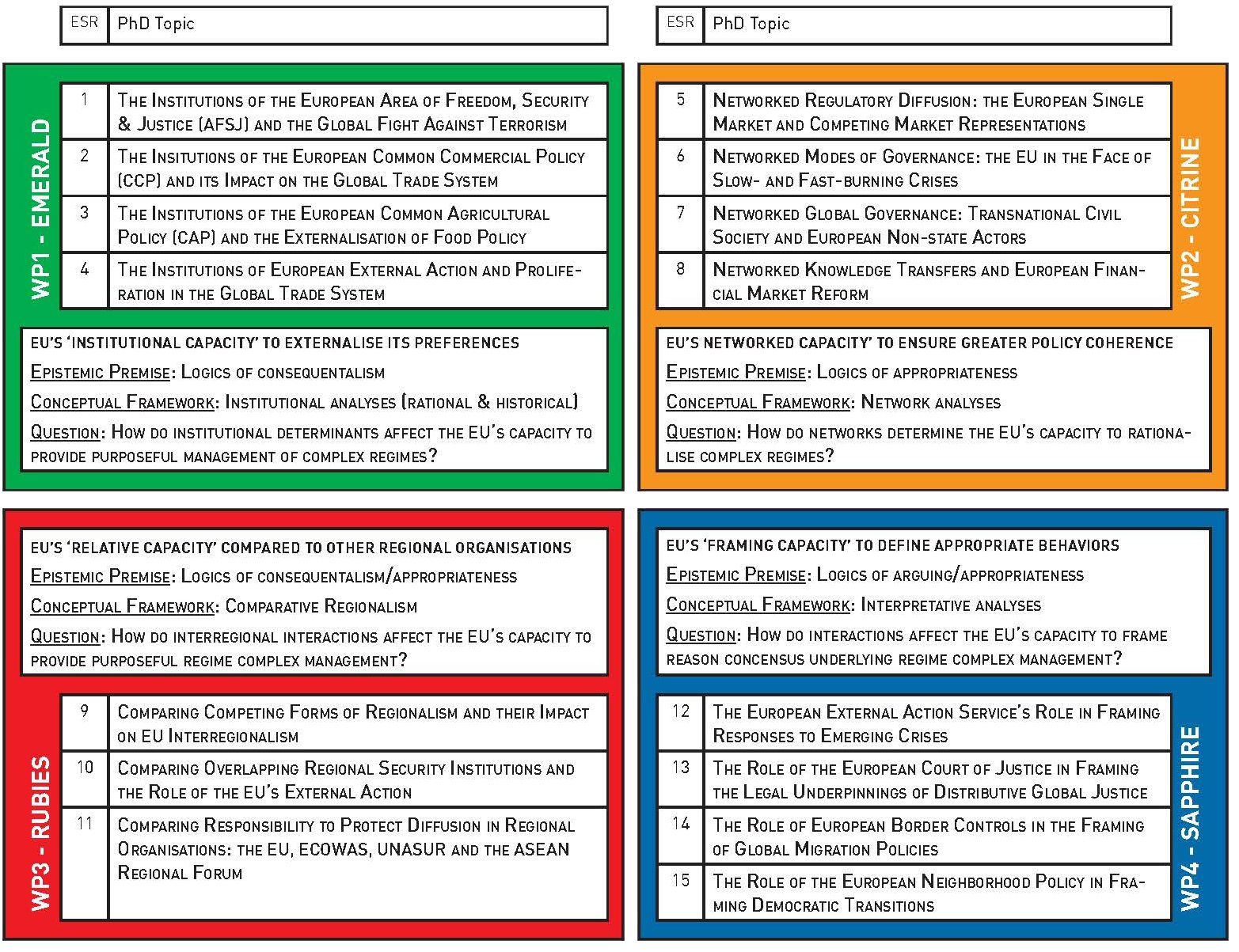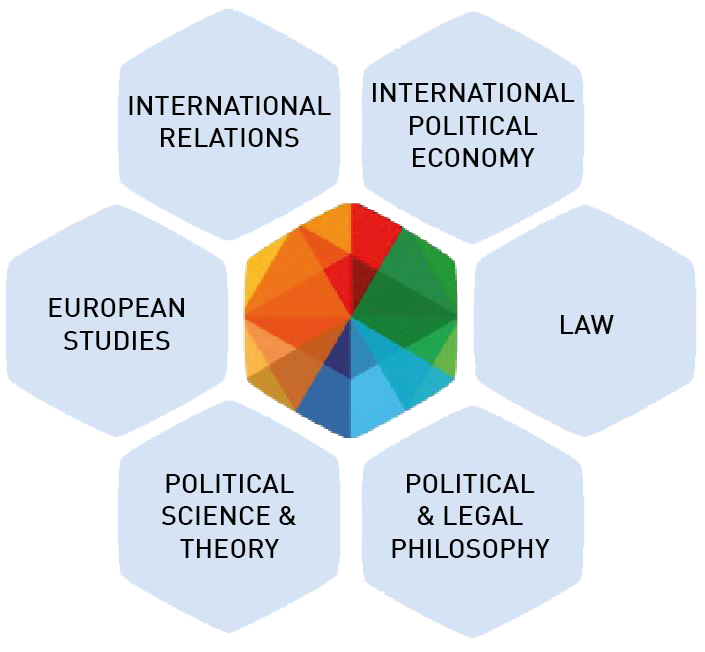Research Design
With an eye on delivering a coherent common scientific agenda, GEM-STONES research design is set up in such a way as to encourage a common focus on the research programme’s core concept (i.e. purposeful management of regime complexes) as well as a smooth articulation between the various constituent projects. For that reason, the 15 Early Stage Researchers and their associated supervisors are clustered into four complementary Research & Innovation Work Packages (WP) each one reflecting a given approach to the EU’s capacity to provide purposeful management of regime complexes.
Research along four axis
Under the stewardship of one of GEM-STONES’ senior academics, each of the four Work Packages will involve 3-4 ESRs alongside 6-8 supervising academics as well as 3-4 non-academic mentors. These research communities will collectively mobilize their explanatory powers to shed further light onto the prospects of the EU contributing to purposeful regime complex management. In this respect, the WP-wide collective research effort will analyse the EU’s capacity to manage complexity from a causal perspective in WP1-EMERALD; in light of social interactions in WP2-CITRINE; through comparative heuristic categorisations in WP3-RUBIES; and by unpacking underlying socially constructed realities in WP4-SAPPHIRE.
GEM-STONES Research Design

In each of these four cases a Work Package -wide Scientific Workshop will serve as the cornerstone of their collective research effort. These workshops are to be closed-door gatherings involving all of the WP’s associated academics and researchers alongside a select set of 3-4 external guest contributors. A scientific workshop will see each attending researcher provide a draft chapter to be discussed by the group for ultimate publication in a WP-wide Edited Volume.
Research across multiple disciplines
 GEM-STONES’ research methodology and approach are fully committed to interdiscplinarity. This allows for mutual learning opportunities between individual research projects, whether it is to consolidate a shared analytical perspective within a given Work Package, or to challenge those developed in other WPs.
GEM-STONES’ research methodology and approach are fully committed to interdiscplinarity. This allows for mutual learning opportunities between individual research projects, whether it is to consolidate a shared analytical perspective within a given Work Package, or to challenge those developed in other WPs.
![]()
This project receives funding from the European Union's Horizon 2020 research and innovation programme under the Marie Sklodowska-Curie Grant Agreement No 722826.
















